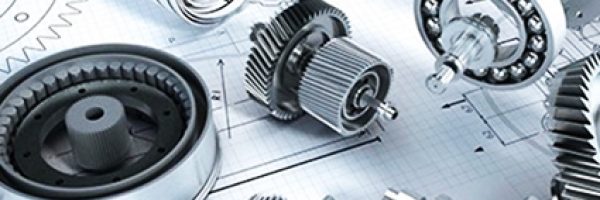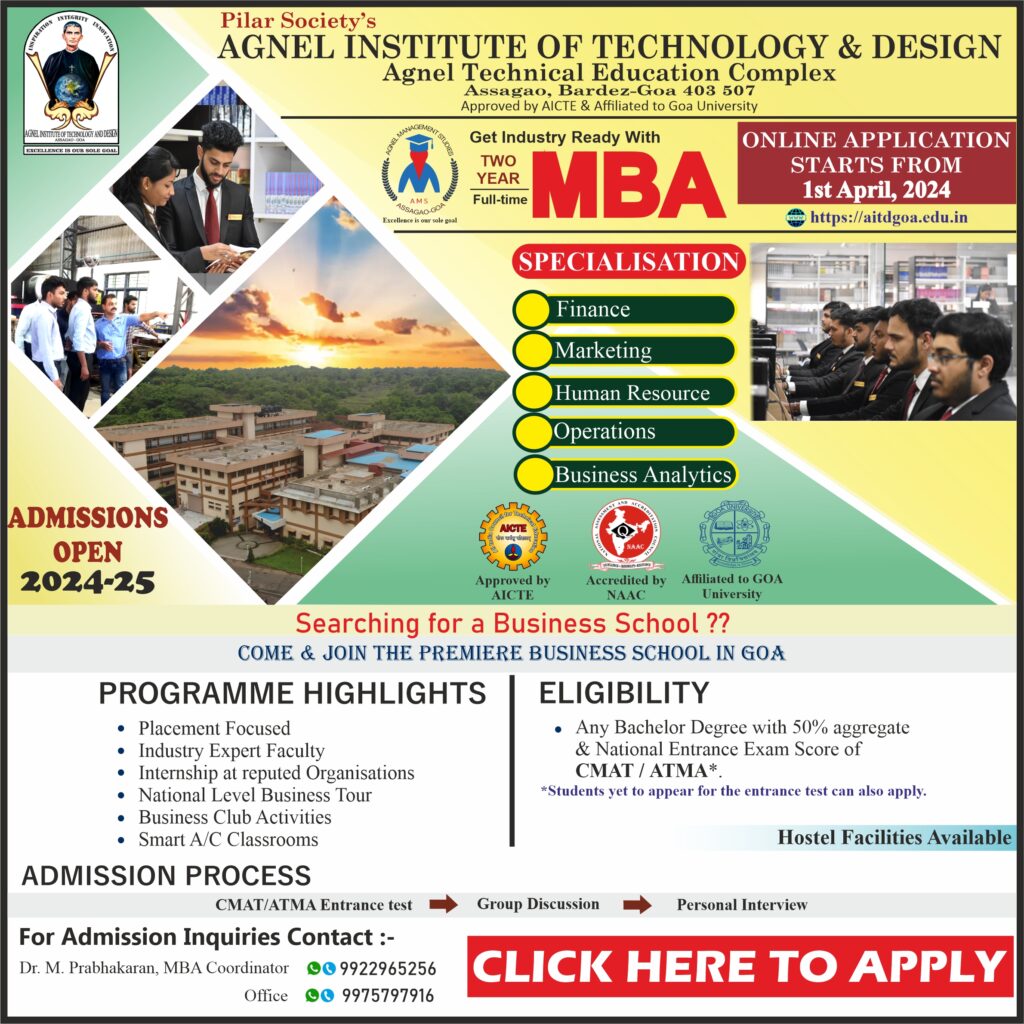
B.E in Mechanical Engineering
Program Overview
Bachelor of Engineering [BE] (Mechanical Engineering) is a four year course. This programme involves the design, analysis, and manufacture of a wide variety of mechanical components and systems.
Mechanical engineers may be employed in a wide range of engineering endeavors from initial research and development of a product to manufacturing and marketing. This programme integrates engineering sciences, conceptual product design, and manufacturing capabilities into a cost-effective, quality product.
Curriculum (RC 19-20 Scheme)
- Mathematics – I
- Chemistry / Physics
- Basic Electrical & Electronics Engineering
- Basics of Mechanical Engineering
- Physics/Chemistry Laboratory
- Electrical & Electronics Laboratory
- Workshop-I
- Environmental Science*
*To become eligible to answer semester I examinations it is mandatory to complete the requirements of audit course.
- Mathematics – II
- Chemistry / Physics
- Computer Programming
- Introduction to Civil Engineering
- Physics/Chemistry Laboratory
- Programming Laboratory
- Engineering Graphics
- Workshop-II
- Mathematics III
- Mechanics of Solids
- Engineering Thermodynamics
- Engineering Materials Science and Metallurgy
- Engineering Metrology and Machine Drawing
- Engineering Materials Science and Metallurgy Laboratory
- Engineering Metrology and Machine Drawing Laboratory
- Technical Communication
- Mathematics I & II (Bridge Course)*
- Energy Conversion
- Machine Design
- Fluid Mechanics
- Analysis and
Synthesis of
Mechanisms - Thermal Laboratory-I
- Fluid Mechanics
Laboratory - Economics for Engineers
PROGRAM EDUCATIONAL OBJECTIVES (PEOs)
- PEO 1 To prepare students to excel in their profession with quality Graduate Programmes and succeed in becoming leaders and managers of Engineering / Technology.
- PEO 2 To provide students with a solid foundation in mathematical, scientific and engineering fundamentals with more emphasis on Computer engineering and become competent to pursue higher studies.
- PEO 3 To train students with comprehensive scientific and engineering skill sets so as to understand, analyse, design and create novel products and solutions for real life problems by adapting state-of-the-art technology and with a concern for human related issues.
- PEO 4 To inculcate in students’ professional ethics, positive integrity, principled attitude, effective communication skills, teamwork skills, multidisciplinary approach, and an ability to relate engineering issues to broader social context.
- PEO 5 To provide students with an academic environment mindful of excellence, leadership, written ethical codes and guidelines, and motivation for life-long learning needed for a successful professional career.
PROGRAM OUTCOMES (POs)
- PO 1 Engineering knowledge: Apply the knowledge of mathematics, science, engineering fundamentals, and an engineering specialization to the solution of complex engineering problems.
- PO 2 Problem analysis: Identify, formulate, review research literature, and analyze complex engineering problems reaching substantiated conclusions using first principles of mathematics, natural sciences, and engineering sciences.
- PO 3 Design/development of solutions: Design solutions for complex engineering problems and design system components or processes that meet the specified needs with appropriate consideration for the public health and safety, and the cultural, societal, and environmental considerations.
- PO 4 ; Conduct investigations of complex problems: Use research-based knowledge and research methods including design of experiments, analysis and interpretation of data, and synthesis of the information to provide valid conclusions.
- PO 5 Modern tool usage: Create, select, and apply appropriate techniques, resources, and modern engineering and IT tools including prediction and modelling to complex engineering activities with an understanding of the limitations.
- PO 6 The engineer and society: Apply reasoning informed by the contextual knowledge to assess societal, health, safety, legal and cultural issues and the consequent responsibilities relevant to the professional engineering practice.
- PO 7 Environment and sustainability: Understand the impact of the professional engineering solutions in societal and environmental contexts, and demonstrate the knowledge of, and need for sustainable development.
- PO 8 Ethics: Apply ethical principles and commit to professional ethics and responsibilities and norms of the engineering practice.
- PO 9 Individual and team work: Function effectively as an individual, and as a member or leader in diverse teams, and in multidisciplinary settings.
- PO 10 Communication: Communicate effectively on complex engineering activities with the engineering community and with society at large, such as, being able to comprehend and write effective reports and design documentation, make effective presentations, and give and receive clear instructions.
- PO 11 Project management and finance: Demonstrate knowledge and understanding of the engineering and management principles and apply these to one’s own work, as a member and leader in a team, to manage projects and in multidisciplinary environments.
- PO 12 Life-long learning: Recognize the need for, and have the preparation and ability to engage in independent and life-long learning in the broadest context of technological change.
PROGRAM SPECIFIC OUTCOMES
- PSO 1: Apply knowledge in the domain of design, manufacturing, material science, thermal and fluid sciences to solve complex engineering problems utilizing advanced engineering tools and techniques
- PSO 2: Foundation of mathematical concepts: Analyze, design, and evaluate mechanical components and systems using IT tools nad engineering software.
- PSO 3: Ability to apply the acquired Mechanical Engineering knowledge for creating more advanced mechanical systems or processes for the advancement of industry, society and country in general.
- PSO 4: Provide students with knowledge of supporting advanced analytical tools for successful careers in industry and prepare them for higher studies.
Career Opportunities
The job opportunities for graduates in the field of Mechanical Engineering are huge in technical fields. Any graduate who has successfully completed a Bachelor of Engineering degree can get a job in almost every sector in India.
Some of the job profiles in the field of mechanical engineering are:
Career Roles
- Design Engineer
- Industrial Engineer
- Supply Chain Engineer
- Thermal Engineer
- Marine Engineer
Eligibility Criteria
The student should have completed 10 +2 education and appear for the Goa Entrance examination to be eligible for this course.
OR
The student should have completed a diploma in Engineering course and appear for Goa Entrance examination for Lateral Entry in degree courses.
Contact Us
- +91 9923259718
- [email protected]
- Mechanical Engineering Department, Agnel Institute of Technology & Design, Assagao Goa
- Visit Department Website

